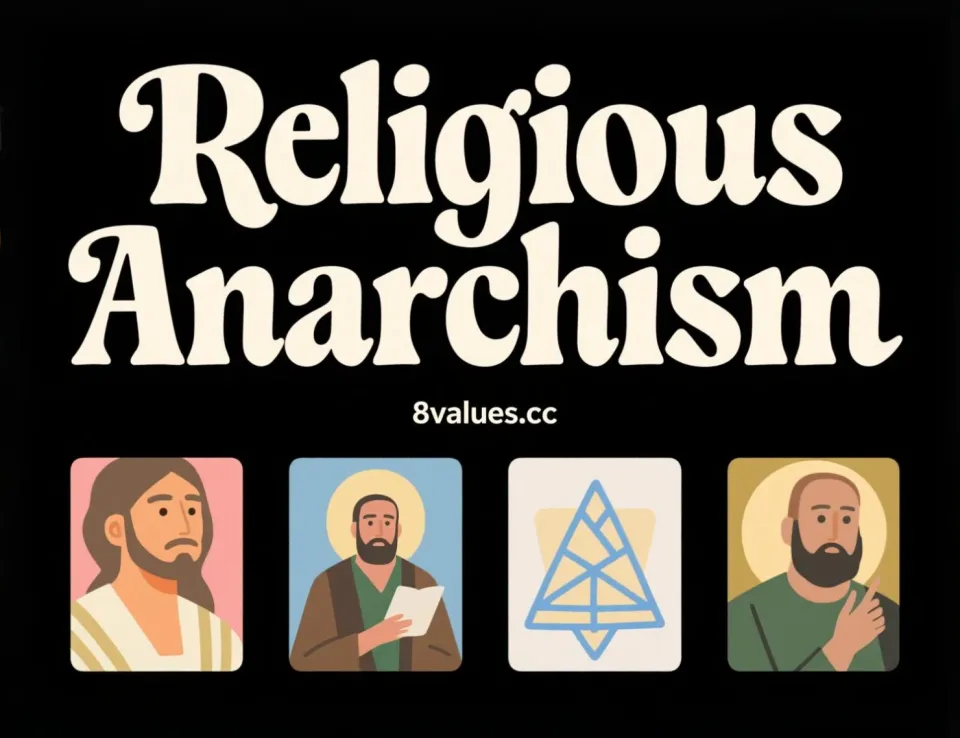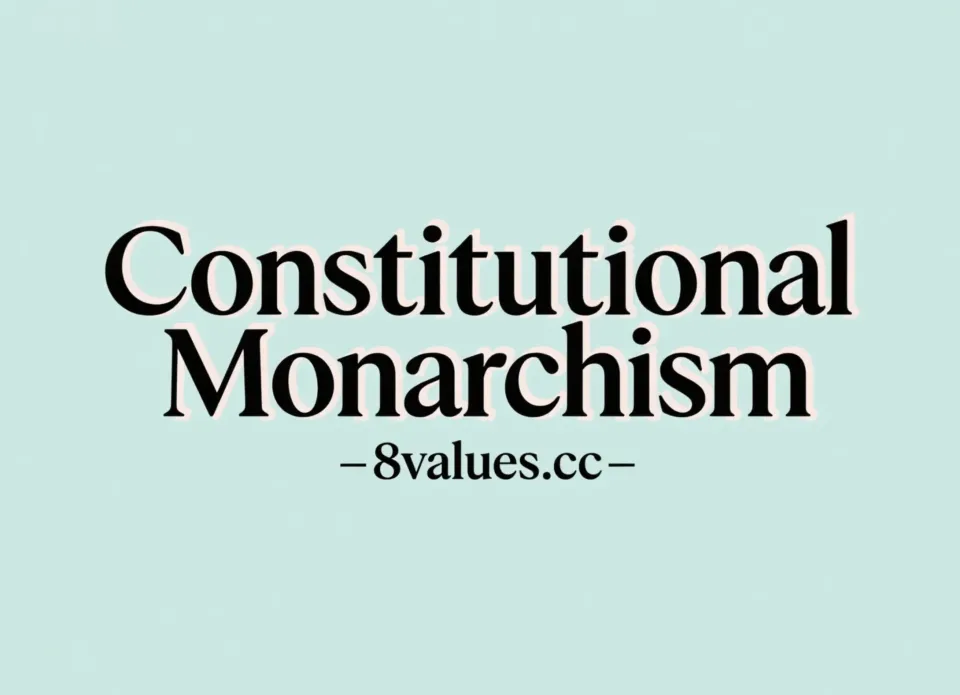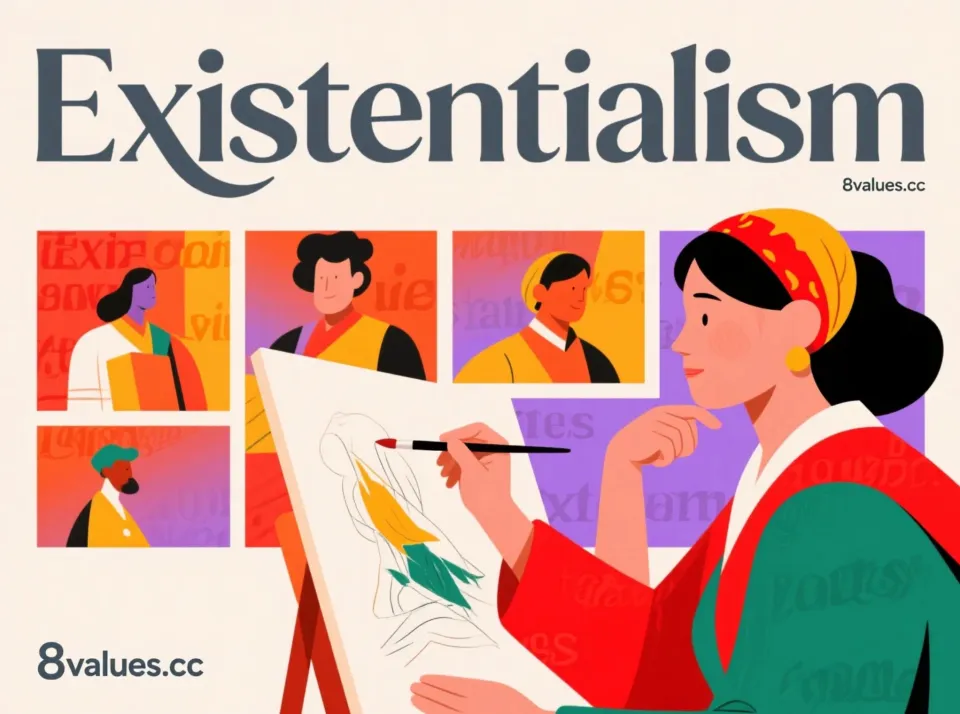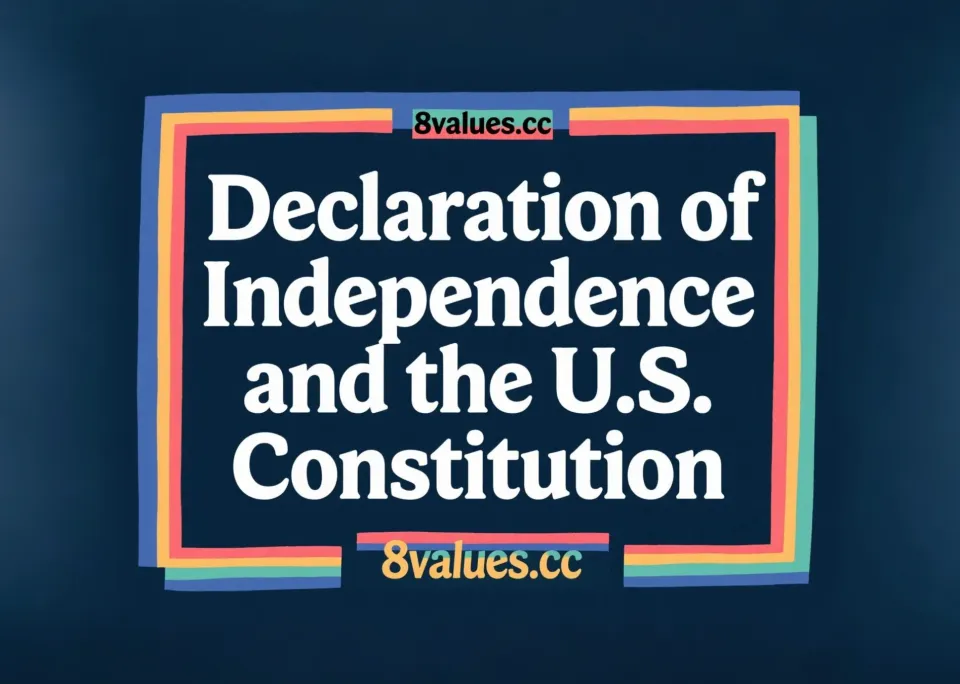Religious Anarchism | 8values Interpretation of ideological ideology in political tests
Explore the core concepts, historical origins and manifestations of different religious traditions of Religious Anarchism. Learn about this political philosophy that combines faith with anti-authority and how it shapes a decentralized, non-violent social vision. Take the 8Values test now and discover your political inclinations.
Anarchism is known for its fundamental opposition to all mandatory hierarchies and state power in a broad picture of political philosophy. However, when we talk about "Religious Anarchism", many people may be confused because it seems to combine the atheist tendency represented by the classic anarchist slogan "Ni Dieu ni maître!" with religious belief. But the fact is that religious anarchism is not a paradoxical recent invention. It has a long and complex history, always coexisting with Secular Anarchism, and launching profound criticism of existing power structures and institutionalized religions.
Religious Anaccarism is a unique school of political philosophy that integrates the principles of anarchism with specific religious or spiritual thoughts, and advocates supporting forms of social organization against hierarchy, compulsory authority, and state power through religious values. This article will explore in-depth the core concept of Religious Anarchism, its manifestation in major religious traditions, and its complex relationships that are both conflicting and complementary to traditional anarchism.
The core concept of religious anarchism: anti-authority and spiritual freedom
The core proposition of religious Anacist is that the true religious spirit is completely consistent with the principles of equality, freedom, mutual assistance and decentralization of Anarchism. They generally believe that any form of compulsory authority, whether secular state power or institutionalized religious institutions, violates the core doctrines of their religion , such as love, justice and peace.
Specifically, Religious Anarchism usually contains the following key characteristics:
- The fundamental critique of state and hierarchy : Religious Anaccharist sees state as a form of violence, deception and idolatry. They argue that the state and its institutions maintain order through coercion and oppression, which runs contrary to the emphasis on love, freedom and divine authority in many religious doctrines. They deny all secular authority, believe that true faith should transcend the constraints of institutionalized religion, and emphasize the direct connection between the individual and God (or higher spiritual principles).
- Spiritual Freedom and Moral Guide : In their view, true authority should not come from human government or religious hierarchy, but from God or spiritual principles that exist within each individual, expressed through conscience and reason. This pursuit of spiritual freedom prompted them to reject externally imposed moral laws and seek inner moral autonomy.
- Nonviolence and Pacifism : Many religious Anarchists, especially Christian Anarchists, firmly advocate nonviolence. They believe that nonviolence is an effective way to resist oppression and achieve social change, and is an inevitable requirement of their religious beliefs. They believe that violence will only breed more violence, and that the purpose will never justify the means.
- Decentralized Community and Mutual Aid : Religious Analism advocates the establishment of a decentralized community based on voluntary alliance, equality and mutual assistance, rather than a structure controlled by centralized authority such as the church or the state.
- Social justice and anti-capitalism : They often criticize the capitalist system, believing that it leads to inequality and exploitation, conflicting with the teaching of justice and caring for vulnerable groups in religious ethics.
The historical origins of religious anarchism: anarchic thoughts that transcend faith
Religious Anarchism is not a single belief system, but exists in multiple religious traditions and has its own unique historical development context.
Christian Anarchism
Christian Anaccharism is the most important and most widely studied genre of religious Anarchism. It argues that the principle of anarchism is internal to Christian faith and the Gospels.
- Anti-authoritative thoughts in the Old Testament : French philosopher and Christian anarchist Jacques Ellul pointed out that the end of Judges records the situation in which Israel has no king and everyone does their own thing. Later in 1 Samuel, the Israelites demanded the establishment of a king like other peoples, but God made it clear that they rejected him as their king and warned the human king that would bring militarism, conscription and high taxes. These accounts are interpreted by Christian anarchists as an early critique of secular state power, believing that under God’s law, the Israelites initially lived in a decentralized tribal alliance with God as the only authority.
- Jesus’ teaching in the New Testament : The core foundation of Christian Anarchism is the teaching of Jesus, especially the Sermon on the Mount. Alexandre Christoyannopoulos explains that the Sermon on the Mount perfectly illustrates Jesus’ central teaching on love and forgiveness, which conflicts with the nature of the nation’s built on violence. Christian anarchists believe that Christians are only responsible for God’s authority, which is reflected in Jesus’ teachings, and therefore they reject the human government’s ultimate authority over society.
- Early Church : Early Christian communities, such as the Jerusalem groups described in Acts, seem to practice the Anarcho-communism lifestyle, where they share property and labor. They were persecuted for refusing to worship the Roman emperor, not just because of their faith in Jesus Christ.
- Modern pioneers and movement :
- Leo Tolstoy : He is one of the most famous advocates of Christian Anarchism. Tolstoy was deeply influenced by the Sermon on the Mount and advocated nonviolent resistance, anti-nationalism and a simple life. His book, The Kingdom of God Is Within You, is considered a key text of modern Christian Anarchism. He believes that all governments that wage war and the churches that support these governments violate the nonviolence of Christianity.
- Anabaptists : radical religious groups in 16th century Europe, who opposed infant baptism and state churches, advocated freedom of belief and community autonomy, were considered religious pioneers of modern anarchism.
- Diggers : During the 17th century, the diggers group led by Gerrard Winstanley, advocated socio-economic organizations that advocated commune ownership and small pieces of cultivated land, were also regarded as pioneers of modern anarchism.
- Catholic Worker Movement : Founded in the 1930s by Dorothy Day and Peter Maurin, it is committed to nonviolence, individualism, and voluntary poverty, and has established “holidays” throughout the United States to help the homeless.
Jewish Anarchism
Anarchism also exists in the Jewish tradition. While many prominent anarchists (such as Emma Goldman and Noam Chomsky) have Jewish backgrounds, there are relatively few clear religious Anarchists.
- The Israelites in the Old Testament period before the king was chosen by the Israelites was regarded as having anarchic tendency.
- Yehuda Ashlag is an orthodox Kabbalapi Rabbi who advocates a Libertarian Communism based on Kabbal principles, called Altruist Communism, and advocates the establishment of an international commune network without compulsory government.
- Rabbiyankev-Meyer Zalkind believes that the ethics of Talmud are closely related to Anarchism.
- Kibbutzim : The Asian agricultural commune in Israel, once characterized by shared property and high equality, was regarded as a social model by Nom Chomsky.
Buddhist Anarchism
Buddhist philosophy, especially for Western thinkers, is often considered to be in line with the principles of Anarchism.
- Buddhism emphasizes nonviolence, compassion and mindfulness.
- Poets such as Gary Snyder believe that the state encourages greed, desire and ignorance, hinders the natural expression of inner wisdom, love and compassion of all beings, and should therefore be replaced by a better system (i.e., anarchism).
- The Kalama Sutta encourages critical thinking, questioning all authority and dogma, and putting personal choice first.
- Zen monk Hakugen Ichikawa once proposed the social idea of "Buddhism-anarchism-communism".
Islamic Anarchism
There are also anti-authoritative qualities in the Islam tradition. Islamic Anarchism believes that man should only obey God's authority, so human secular authority is illegal.
- The 15th century revolutionary Sheikh Bedreddin advocated equality of all religions and public ownership of property.
- Sufism is also often considered to have anti-authoritative traits.
Taoist Anarchism
Taoism in ancient China is considered to be one of the prototypes of Anarchism.
- Taoist thinkers such as Laozi and Zhuangzi criticized authority and advocated "governing by doing nothing", believing that the less rulers intervened, the more stable and effective the society was.
- Some Taoist thinkers such as Bao Jingyan clearly advocated anarchy.
The complex relationship between religion and anarchism: conflict and compatibility
The relationship between anarchism and religion is not always harmonious, but is full of conflict and subtle compatibility.
Conflict of traditional concepts
Many anarchists have traditionally been skeptical or even strongly opposed to organized religion. They believe that religion (especially institutionalized forms) is often closely linked to authority and hierarchy and provides legitimacy to the State and the ruling class through a sacred way, thus becoming a source of oppression and inequality. Therefore, many anarchists express their rejection of all forms of authority, including divine authority, with the slogan "No God, No Master!" as a slogan. Early anarchist thinkers such as William Godwin, Max Stirner and Mikhail Bakunin all expressed their critique of religious institutions or beliefs themselves.
Compatibility and the "third road"
However, the existence of Religious Anarchism itself proves that this relationship is not an absolute negative connection. Religious Anactics believe that the religion they believe in, if returned to its "pure" or "primitive" teaching, is actually anti-authoritarian and liberating. They mainly criticize institutionalized religious organizations and their support for secular power rather than the spiritual core of individual beliefs.
In addition, some scholars point out that political ideology itself often exhibits "religious" characteristics. Anarchism, for example, also has its “doctrinal and philosophical core,” shared historical narratives, social and institutional dimensions, ethical and legal dimensions, practical and ritual elements, and material and emotional experiences. This shows that the line between “religion” and “political ideology” is blurry and porous and requires a more detailed understanding.
The Practice and Modern Significance of Religious Anaccharism
Religious Anarchism is not only a philosophical idea, but also reflected in specific social practice.
- Non-violent direct action : Many religious anarchists pursue social change through non-violent resistance, civil disobedience and community building. This includes refusal to serve in the military, refusal to pay taxes (to avoid immoral behavior such as funding wars), and building mutual aid communities.
- Simple living and ethical choice : Some followers advocate Simple living and Vegetarianism as a practice of rejecting capitalist materialism and extending compassion.
- Contemporary Revival : Entering the 21st century, the idea of Religious Anarchism has shown signs of revival, with new research, publications and online communities emerging, especially in traditions such as Christianity, neopaganism, Buddhism and Islam.
Religious Anarchism provides us with a unique perspective on the complex interactions between faith, authority and freedom. It challenges our stereotypes of “anarchism” and “religion” and shows how spiritual pursuits can be a powerful driving force for resisting oppression and building a vision for just society. By combining deep spiritual beliefs with radical social criticism, Religious Anarchism is not only committed to external social change, but also emphasizes the moral transformation and inner liberation of the individual.
If you are curious about your political tendencies and want to know which ideology your values are most in line with, welcome to conduct an 8Values political tendency test , explore your unique political spectrum, and check all results for a detailed interpretation of 52 ideologies to gain an in-depth understanding of the charm and connotation of different political thoughts. In addition, you can find more articles on political theory and its real-life applications in our blog .






